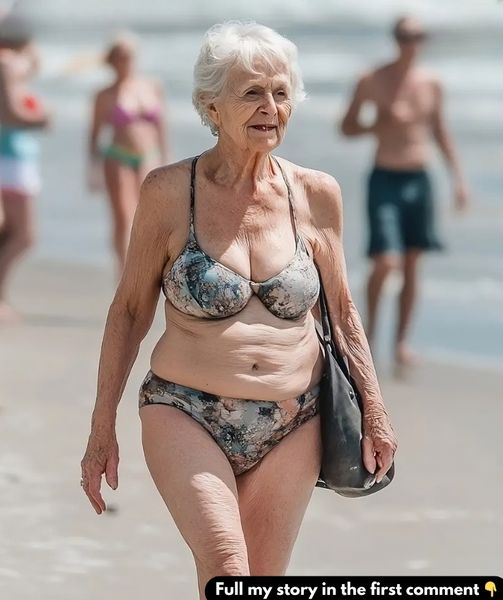Every summer, like clockwork, the media floods us with images of women on vacation, scrutinizing every tiny detail. Are they wearing bikinis? Are they “too old” for them? Are they “too big” or simply too comfortable in their own skin? Cue the unwanted commentary: “Why is she wearing that at her age?” or “Shouldn’t she be in a one-piece?” Sadly, this has become a predictable part of the season. From paparazzi shots to cruel headlines, this annual ritual of body shaming continues to enforce unrealistic beauty standards. But why has this become the norm, and what does it say about our society’s view of women’s bodies?

The Annual Spectacle of Body Shaming
Let’s call it what it really is: a spectacle. During the summer months, some media outlets revel in showcasing female celebrities in swimsuits. These aren’t just innocent photos; they become weapons. Paparazzi often snap women in vulnerable moments—adjusting a towel, stretching, or bending over—using unflattering angles to highlight perceived imperfections. And if the photo isn’t embarrassing enough, they can always edit it to make it worse.
Why do these images get so much attention? Why is there such a public hunger to see women, particularly those who are aging or don’t fit into a size eight, criticized for simply enjoying their lives?
Why Women’s Swimwear Choices Are Everyone’s Business
It seems that women’s bodies have long been treated as public property. When a famous woman wears a bikini, her body is dissected for all to see. It’s not just about fashion; it’s about reinforcing certain expectations. Women are constantly told to age gracefully, but if they step outside these expectations—whether it’s their body size or age—they become targets for public ridicule.
The Pressure to Have a “Bikini-Ready” Body
Every summer, we’re bombarded with the idea of achieving the perfect “bikini body.” The message is clear: only certain types of bodies are deemed worthy of wearing a bikini. If you don’t fit that mold, you’re expected to cover up. This obsession with the “bikini body” has spawned an entire industry of fad diets, extreme workouts, and wellness products aimed at women. The underlying message is that women must constantly strive to meet society’s physical standards or face the label of being “unworthy” of enjoying summer fun.
The Bikini Double Standard: Age and Gender
While the media occasionally scrutinizes men’s bodies, it overwhelmingly focuses on women, particularly older women. Male celebrities are often allowed to age without scrutiny, even being celebrated for it. A man can gain weight or go gray, and it’s seen as distinguished. But if a woman ages—especially in a bikini—the narrative becomes one of mockery. The media, particularly in the UK, often disguises these critiques as admiration, subtly encouraging readers to judge and sneer.
Paparazzi: Turning Innocent Moments Into Shame
The role of the paparazzi in this annual ritual can’t be ignored. Their long lenses don’t seek glamor; they hunt for the mundane moments that humanize these celebrities—moments like applying sunscreen or sitting comfortably. These snapshots create a spectacle that draws attention and fuels conversations across social media and tabloids.
Capturing Women at Their Most Vulnerable
These unflattering images often show women in natural moments—relaxing, bending over, or adjusting a swimsuit—and turn them into punchlines. It’s as though women enjoying their vacation have somehow invited the world’s judgment simply by not being “camera-ready.”
Public Humiliation as Entertainment
What’s most troubling is that this ritual of public shaming seems to entertain people. There’s an underlying cruelty that society has become numb to, as this cycle of “shock, shame, and share” continues. Women’s bodies are treated as entertainment, with little regard for the real people behind the photos.
The Psychological Toll of Body Shaming
Research shows that exposure to body-shaming content negatively impacts mental health, lowering self-esteem and increasing body dissatisfaction. This doesn’t just affect celebrities—it affects all women. When the media presents a narrow definition of who is “allowed” to wear a bikini, it sends a harmful message that many women internalize, leading to feelings of inadequacy and self-consciousness.
Reclaiming the Bikini: A Shift in Perspective
Thankfully, more and more women are fighting back against these toxic narratives. Movements toward body positivity and inclusivity are encouraging women to embrace their bodies, no matter their size or age. Women are reclaiming their right to wear whatever they choose without fear of judgment.
Conclusion: Let’s End the Shaming
This annual spectacle of body shaming needs to stop. It’s more than just a tabloid trend—it reflects a society that imposes unfair standards on women’s bodies. The irony is that the women being judged are often the most relatable. They’re not on a red carpet; they’re enjoying a vacation, just like anyone else. It’s time we let them be. Let’s shift the focus away from how women look in a bikini and towards celebrating diversity, age, and body types. Every woman deserves to bask in the sun without the harsh glare of judgment.





